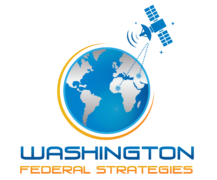Spectrum Management
Spectrum Management is the art and science of managing the use of the radio spectrum in order to minimize interference and ensure radio spectrum is used to its most efficient extent and benefit for the public.
The US spectrum is managed either by the Federal Communications Commission (FCC) for non-governmental applications or by the National Telecommunications and Information Administration (NTIA) for governmental applications. For shared application, both entities should agree. The team at Washington Federal Strategies works closely with both enteties on our client's behalf, to secure the proper licensing.
Compliance Planning
Compliance Planning: Your Launchpad for Long-Term Success
Compliance isn’t the most exciting part of running a space company—but it’s one of the most important. At Washington Federal Strategies, we help space operators stay mission-ready by ensuring their regulatory obligations never fall through the cracks.
Here’s the problem: Compliance responsibilities often rest on one individual listed as the contact on your FCC, FAA, or NOAA license. When that person leaves, retires, or changes roles, monitoring can stop—sometimes without anyone noticing. That’s when companies fall out of compliance.
And the consequences aren’t theoretical:
-
DISH Network was fined $150,000 by the FCC for failing to properly dispose of an aging satellite.
-
SpaceX faced over $800,000 in proposed FAA penalties for unapproved launch activities and missing pre-launch data.
-
Another firm was hit with a $1.4 million fine for failing to make required regulatory payments.
Compliance failures like these are preventable. That’s where we come in.
At Washington Federal Strategies, we build proactive compliance systems that:
-
Ensure continuity even when key personnel change
-
Track deadlines and renewal windows across all licenses
-
Keep you aligned with FCC, FAA, NTIA, and NOAA requirements
-
Support licensing for experimental, lab, launch, and operational phases
A company with one satellite typically needs at least three licenses. As your operations scale, so does your regulatory footprint. Without a solid compliance foundation, growth becomes risky. By the time you reach five satellites, you’re juggling dozens of moving parts. Without a plan, you could stall before you ever get there.
Think of it like your driving record—clean compliance keeps your relationship with regulators smooth and your mission on track.
Let’s plan your compliance like your mission depends on it—because it does.
Research & Development
Research and development is an important factor when innovating a product to bring to market. To design a technology is costly, and knowing how to design a product that will be able to operate on the spectrum is critical.




